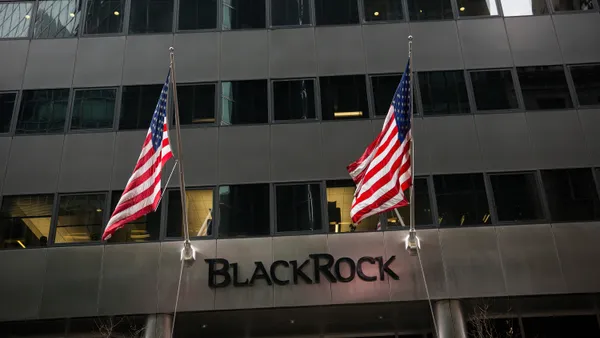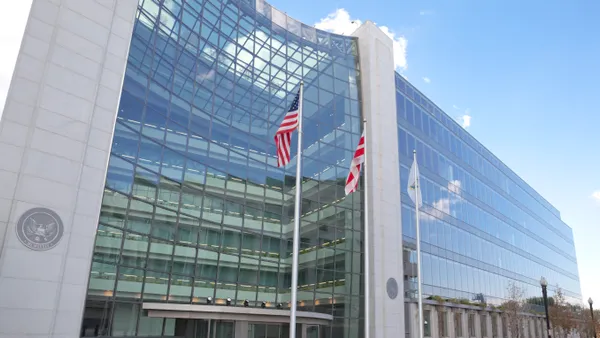Dive Brief:
- A record number of environmental and social-related shareholder proposals, 349, went to a vote before U.S. boards in the first half of 2024, according to data unveiled by Diligent Market Intelligence Tuesday. This is up from 319 and 256 for the same time span in 2023 and 2022, respectively.
- In spite of the record number of submissions put forward by June 30 this year — including six climate proposals that secured above 40% support — average support for environmental and social proposals continues to fall. E&S proposals at U.S. companies have received an average of 16.2 % support so far this year, per Diligent.
- The findings track with recent analysis from law firm Freshfields and the Sustainable Investments Institute, both of which show ESG proposal approval rates continue to fall from a high in 2021.
Dive Insight:
Diligent’s analysis found that shareholder requests for more greenhouse gas emissions reporting received increased investor support this cycle, as companies are beginning to prepare to comply with climate-risk disclosure regulations both in the U.S. and abroad.
Of the six climate proposals that received over 40% support, five of them asked companies to enhance their reporting on greenhouse gas emissions. The only two climate proposals to receive majority support this year asked fast food chains Wingstop and Jack in the Box to adopt scope 1 and 2 emissions reductions targets and annually report on progress.
Tracy Rembert, the associate director of climate change and environmental justice at the Interfaith Center on Corporate Responsibility, told Diligent that investors “have increased expectations” for companies to report their greenhouse gas emissions given the expanding regulatory landscape.
Climate disclosure regulations from the Securities and Exchange Commission and California are facing legal challenges. However, Rembert said that because of the European Union’s Corporate Sustainability Reporting Directive, “investors are going to be getting the disclosures they need regardless of what California or the SEC does.”
“The companies that wait until California or the SEC rule becomes final are going to be way behind the curve,” he told Diligent.
This year’s proxy season also saw the emergence of artificial intelligence-related proposals, in line with expert predictions made at the beginning of the year. Companies faced votes on six proposals asking for increased AI transparency or misinformation reporting, with the votes receiving an average of 23.6% average support. An AI transparency proposal at Apple — which sought an exclusion with the SEC — received 37.5% support.
“Companies should establish a governance framework to oversee and monitor activities related to the development and use of AI,” ICCR Senior Director for Health Equity Meg Jones-Monteiro told Diligent.
While ESG proposal approval rates have steadily declined since 2021, there was an increase in activist demands at U.S. companies. Diligent’s report found 449 activist campaigns at U.S. companies in the first half of the year, a jump from 412 campaigns over the same period in 2023.
Of those, 232 (51.7%) were at companies valued at more than $10 billion, and the activist campaigns have carried hefty costs. The campaigns cost activists an average of $1.7 million and companies $4.4 million, Diligent said.
“The landscape of shareholder activism and corporate governance is becoming increasingly complex and dynamic,” Richard Peterson, Diligent vice president of data strategy and services, said in the release.
“With high-profile shareholder activist campaigns coming under enhanced public scrutiny, it is increasingly more important for companies to have a robust and data-driven corporate governance and shareholder engagement strategy in place, in the event an activist comes knocking,” Peterson said.












